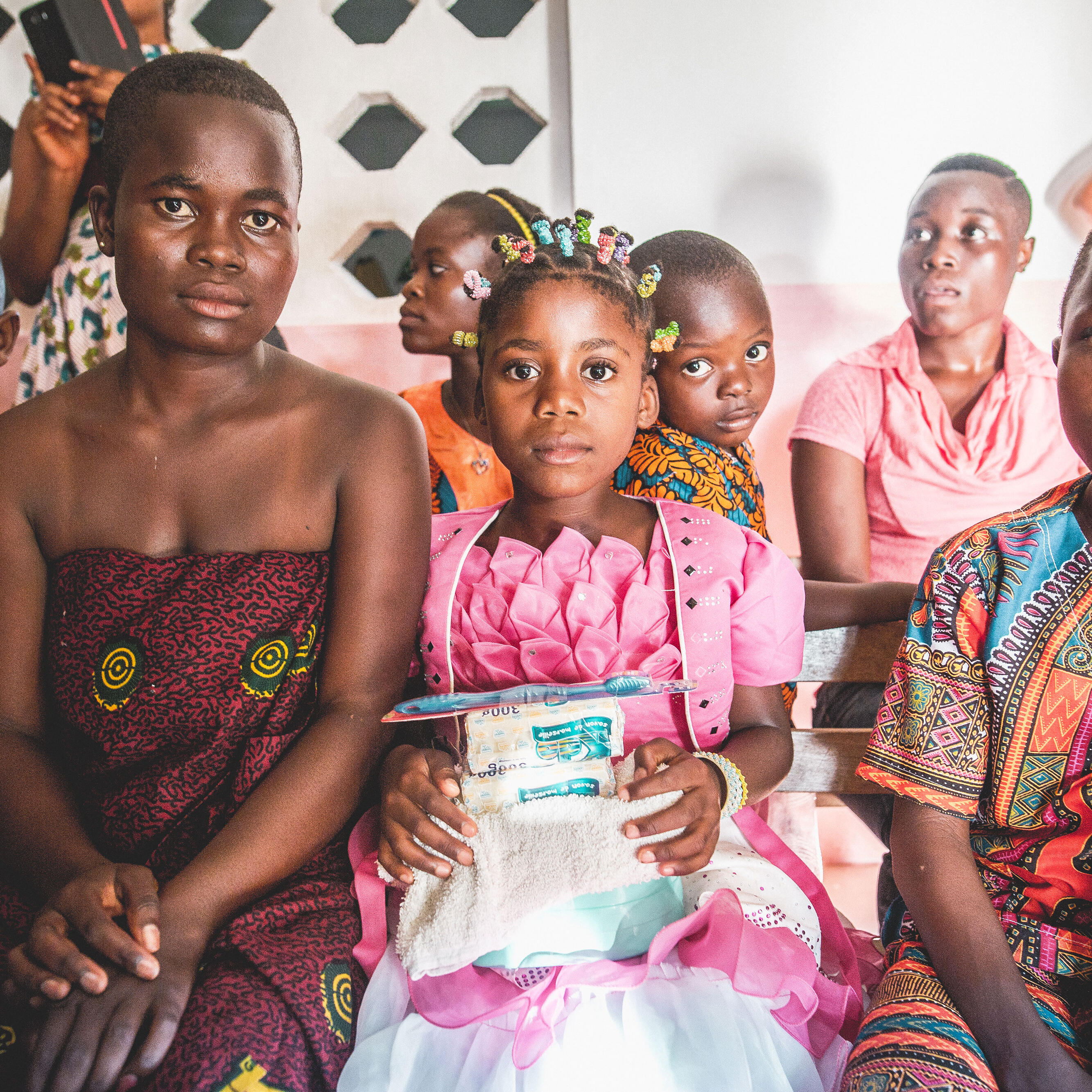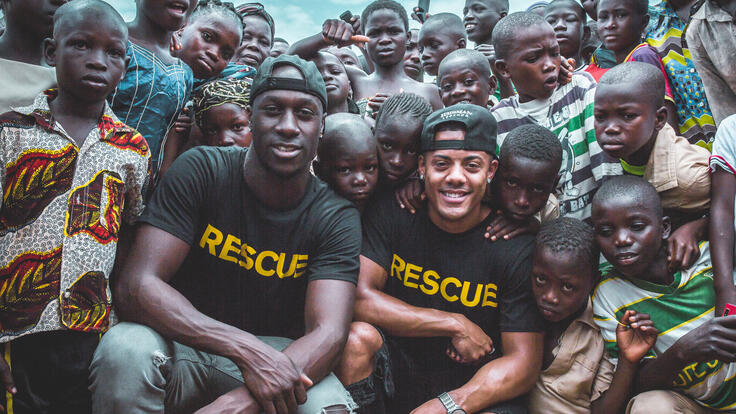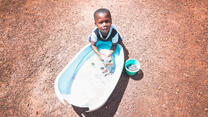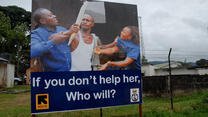Country facts
- Population: 20.32 million
- People displaced by crisis: 300,000 Ivorians and 44,000 refugees
- Rank in Human Development Index: 172 of 188
IRC response
- Started work in Ivory Coast: 1994 (until 1996, reopened in 2003)
Ivory Coast, located in West Africa, is recovering from a decade in the grip of violent conflict. The IRC helps vulnerable Ivorians meet urgent needs and rebuild their lives after years of civil war.
In 2002, political rebellion in Ivory Coast (also known as Cote d'Ivoire) erupted into years of violent civil war, leaving the country divided and hundreds of thousands displaced. Despite attempts to create peace, post-election conflict broke out again in 2010, uprooting millions and damaging the country’s economy.
Ivory Coast also remains vulnerable to the spread of Ebola, terrorism, and security issues from bordering countries such as Liberia, Guinea and Mali.
While the situation in Ivory Coast has improved in recent years, many people still suffer from the consequences of 10 years of crisis. Economic inequality continues to rise while access to basic social and financial services remains difficult.
Despite a significant decrease in violence since the last political crisis, tensions may resurface during future elections, since the root causes of these issues have not been fully addressed.
Without proper health care, women and adolescent girls are at risk of unwanted pregnancies, as well as post-natal complications. While violence against women is still a widespread public health issue, access to adequate medical and psychosocial support remain largely insufficient for survivors.
The IRC’s mission is to help people whose lives and livelihoods are shattered by conflict and disaster to survive, recover and gain control of their future.
We first began providing aid in Ivory Coast from 1994 to 1996 to provide assistance to Liberian refugees in the country. After civil war broke out in 2002, we restarted our efforts, providing resources to help vulnerable Ivorians rebuild their lives.
Although the country has made good progress since the most recent civil war, inequality is on the rise, and the hardest hit regions still face challenges to their recovery. The IRC is focusing our efforts the these areas in Centre, Centre-West, Western and Northwestern Ivory Coast by:
- providing access to basic health care and clean water in an effort to prevent the spread of disease
- supporting community businesses and creating jobs for youths
- making childbirth safer and lowering the child mortality rate
- empowering women to make personal and economic decisions, and reducing sexual violence
- making sure children can enroll in school through construction of new school buildings and economic empowerment of parents
- providing HIV prevention, care and support for orphans, vulnerable children and people living with HIV/AIDS
- supporting infectious disease (including Ebola) surveillance, prevention and community awareness
The IRC’s work in Ivory Coast is more critical than ever as many still struggle to recover from war. We pledge to put the needs of those most affected by crisis, specifically women and girls, at the forefront of our efforts and to achieve measurable improvements in health, safety, education, economic well-being and empowerment. Here’s a closer look at some of the work we will be doing over the next few years to achieve our goals.
We will continue to support Ivorians by providing aid in the most vulnerable regions of the country until the 2020 elections have passed, peoples' basic needs are met and communities become more stable. We’ll also continue to help women and girls access proper health care, education and career services.
IRC teams and partners expects to reach 2.1 million people by the year 2020, focusing on the following areas:
Health
People should be protected from illness and receive medical treatment when they need it. The IRC will continue to protect women and adolescent girls from unintended pregnancies, and provide aid for complications during childbirth. We will work to reduce child mortality and to ensure that women and girls are protected from and treated for the consequences of sexual harassment and violence.
We will also provide access to clean water, sanitation facilities and health services that prevent the spread of communicable diseases such as cholera, HIV, measles and meningitis.
Safety
People should be safe in their homes and communities, and receive support when they experience harm. The IRC is committed to ensuring that women and girls are equally safe from harm as men and boys where they live, learn and work.
Education
Children, youth and adults should have access to safe and effective education services. Towards this end, the IRC will provide adults and youth with the livelihood skills they need to start careers. We will also work to ensure that school-aged children can access basic education and have age-appropriate literacy, numeracy, and social and emotional skills.
Economic wellbeing
People should have the means to meet basic needs; they should have opportunities to earn an income and build their assets.
Power
People should have a say in the direction of their communities and influence over their governments.
Download the IRC's Ivory Coast strategy action plan to learn more about our programme priorities until 2020.
In 2015, the IRC and our partner organisations in Ivory Coast provided:
446,000
We helped the Ivorian village of Monleu curb the spread of cholera with good hygiene practices.
14,700
Our economic recovery programmes help clients regain control of their futures by establishing financial stability and autonomy.
1.5 Million
We’re committed to ensuring people have access to the vital health services they need.



